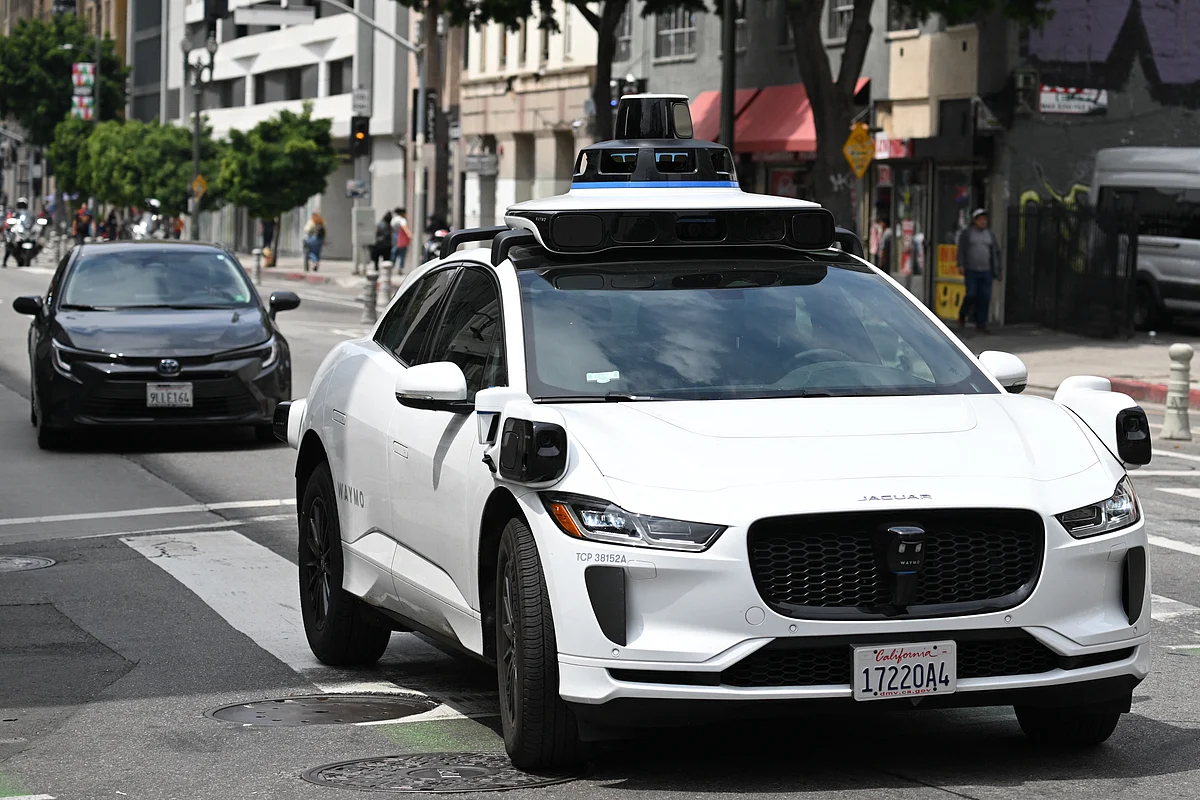Toyota, Waymo team up to supercharge self-driving — is Tesla in trouble?
Alliance signals a seismic shift in autonomous vehicle innovation and scale

Hold onto your steering wheels: Toyota and Waymo just shook hands, and the world of autonomous cars is buzzing like never before.
Toyota’s the heavyweight champ of car makers — they churn out more rides than anyone else on the planet.
Waymo? They’re basically the brainiacs of self-driving tech, packing AI wizardry into their cars like some sci-fi magic.
Driverless future
Now imagine Toyota’s muscle teaming up with Waymo’s brains — it’s like Batman meeting Iron Man but for the driverless future.
Together, they’re flooring the accelerator to get smart, self-driving wheels cruising the streets faster than you can say “autopilot engaged”.
Shift
This alliance isn’t just a business deal — it’s a seismic shift that could flip the whole self-driving game on its head.
A 2024 McKinsey report found that partnerships like this could cut autonomous rollout time. Another study by Statista shows global trust in self-driving tech jumps when brands like Toyota are involved.
In short: Big brains, big machines, big moves.
Piotr Pawlak, President of Toyota Northern Europe, stated on X: "We are already investing 9 billion dollars in research and development of cutting-edge technologies, conducted across 22 global centers. Our key focus is road safety and Toyota is aiming at the complete elimination of accidents through three pillars: people, vehicles, and road infrastructure."
Waymo has successfully implemented self-driving cars in the San Francisco Bay Area, Los Angeles, Phoenix, and Austin.
"Data from tens of millions of miles driven show that roads with Waymo’s technology are safer, with Waymo vehicles involved in 81% fewer injury-causing accidents compared to the average human driver."
Toyota’s subsidiary, Woven by Toyota, is also a core part of this initiative, contributing software, AI, and system integration resources.
Knock-on effect?
Barrons predicts it could have a positive knock-on effect on both industries, creating a potential for new business models around robotaxis and mobility-as-a-service.
The joint effort, if fully realised, could lead to a large-scale adoption of high-level autonomous tech by a mainstream automaker.
Greater consumer trust from the Toyota brand fosters public acceptance.
The move could also help accelerate regulatory considerations and safety standards due to Toyota’s global reach.
Underlying technologies
The collaboration leverages Waymo’s “Waymo Driver,” a fully autonomous system utilising multi-modal sensor fusion:
Sensors: Lidar, radar, and cameras for real-time 360-degree perception, detecting vehicles, pedestrians, cyclists, and static elements.
HD maps: Custom high-resolution mapping allows the vehicle to localise within inches.
AI prediction: Advanced neural networks predict the behaviour of surrounding road users, constantly updating safe trajectories.
Planning and control: The system integrates sensor data and AI predictions to plan optimal, safe maneuvers.
Simulation: Waymo uses over 20 million real-world autonomous miles and more than 20 billion miles in simulation for iterative learning and validation, according to Digital Trends.
Toyota’s Arene Platform: Woven by Toyota is integrating this advanced software environment, which accelerates development, testing, and deployment of vehicle software features, Reuters reported.
Competing solutions
The autonomous vehicle field is highly competitive. Key players include:
Tesla Full Self-Driving (FSD):
Relies primarily on cameras (Tesla Vision), with no lidar/radar, and is oriented toward a “driver-assist” model requiring human supervision. Tesla FSD operates on highways and city streets, with ongoing upgrades through over-the-air updates.
Aurora:
Focuses on the Aurora Driver, a sensor-first modular platform aimed at both commercial trucking and passenger vehicles.
EasyMile, HERE Technologies, Navya, and others:
These companies target specific markets like shuttles, logistics, and industrial mobility, often using combinations of sensors and proprietary AI stacks.
Applied Intuition, Cruise, and Argo AI:
Build widely licensed or in-house platforms for OEMs and fleet operators, emphasising simulation and safety validation.
Challenges
The alliance faces some real-world challenges, say experts.
Adapting Waymo’s AI-driven platform to vehicles produced at Toyota’s global scale is a complex software-hardware integration effort, according to Automotive Drive.
Regulatory hurdles is another speed bump. National and international regulations often require a driver present, constraining full autonomy deployment in many markets.
As for liability and safety assurance, assigning responsibility and ensuring system failsafes are robust at mass scale, especially with mixed fleets, should be made a priority.
Another key challenge is market competition. Tesla, BYD, and other players are advancing rapidly with alternative tech stacks, putting pressure on Toyota-Waymo to innovate and execute swiftly.
Consumer trust is a key challenge, as persuading millions of Toyota fans to accept Level 4/5 autonomy, especially outside early-adopter demographics, will require clear demonstrations of value and safety.
New standard
Still, by fusing the credibility and manufacturing prowess of Toyota with Waymo’s proven AI and sensing platforms, Forbes speculates that the collaboration could set a new standard for safe and accessible self-driving cars.
Will this spark wider acceptance and speed up regulations for autonomous vehicles worldwide?
Only time — and the road — ahead will tell.
Sign up for the Daily Briefing
Get the latest news and updates straight to your inbox
Network Links
GN StoreDownload our app
© Al Nisr Publishing LLC 2026. All rights reserved.